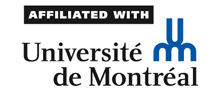By Scott Pruysers, University of Calgary William Cross, Carleton University The Story Political parties are increasingly going negative in their campaign advertising and electoral messaging. At the same time, party leaders and candidates are becoming increasingly relevant to considerations of vote choice and to the electoral success of political parties. There is an increasing trend […]
by Katherine V. R. Sullivan, Université de Montréal There has been ongoing talk of a possible electoral system reform in Canada. But what are the various options and what would be their consequences for voters and parties? In order to offer insights on these questions, the Centre for the Study of Democratic Citizenship and the Research […]
By Alexandre Morin-Chassé, Université de Montréal Damien Bol, King’s College London The goal of our research project is to improve the quality of post-election survey data on electoral turnout by reducing abstainers’ tendency to lie. Usually, the turnout reported in post-election surveys is much higher than in reality, and this is partly due to abstainers […]
By André Blais, Université de Montréal Elisabeth Gidengil, McGill Université Anja Kilibarda, Columbia University What’s the story? Recent research suggests that trust in governments in postindustrial democracies has eroded. In fact, citizens increasingly believe that governments are unresponsive to their needs, and they frequently hold politics and politicians in low esteem. Perceptions of corruption […]
By Katherine V.R. Sullivan, Université de Montréal What’s the story? Prince Edward Island is inviting Islanders to take part in an electoral reform plebiscite over a 10-day period between October 29th and November 7th. This extraordinary plebiscite will not only ask citizens to express their preferences about five different electoral systems, it will also allow […]
By André Blais Université de Montréal Anja Kilibarda Columbia University What’s the story? Elections are often seen as a way for citizens to communicate their views. However, much research has shown that many voters are not well informed about the issues of the day. This raises the question whether some people make the wrong choice. […]
By André Blais, Eric Guntermann & Marc A. Bodet What is the story? We propose a simple and original standard for evaluating the performance of electoral democracies: the degree of correspondence between citizens’ party preferences and the party composition of the cabinet. The criteria We propose three criteria for assessing the correspondence between […]
By Katherine V. R. Sullivan, Université de Montréal What is the story? Elections are designed to ensure that citizens’ views are taken into account by the political decision-makers. The hope is that voters will support the candidates/parties that represent their viewpoints and that as a consequence their views will have an indirect influence on the […]
By Ignacio Lago, Univesitat Pompeu Fabra, Barcelona * The influence of politics on sports and more specifically on football (soccer) has been widely discussed, but no hard empirical evidence can be found in political science, economics or sports science research. We fill this gap by examining whether the competitive balance in football domestic leagues (i.e. […]
By André Blais, Université de Montréal* I examine Duverger’s law according to which « the plurality rule leads to a two party system. » I am interested in the party system at the electoral level, that is, the distribution of votes among the parties. Even though I show that the contemporary evidence tends to disconfirm Duverger’s law, I […]
